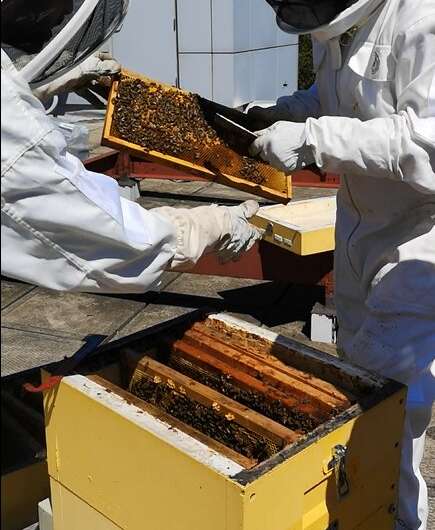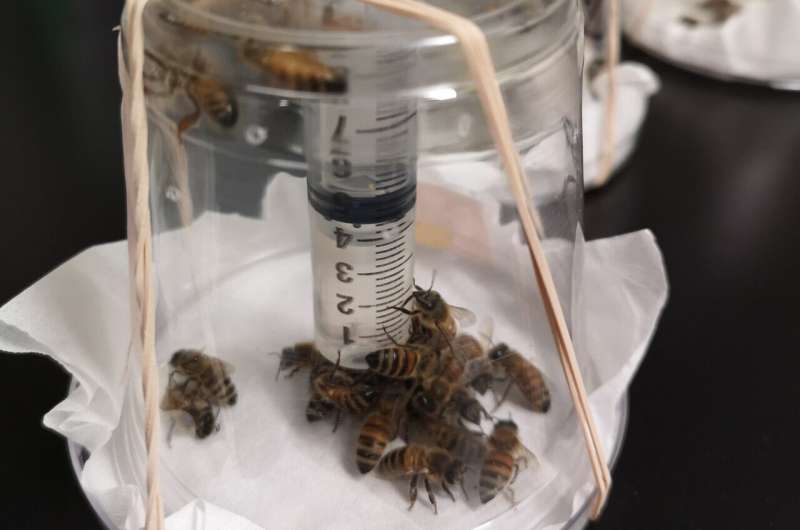This article has been reviewed according to Science X's editorial process and policies. Editors have highlighted the following attributes while ensuring the content's credibility:
fact-checked
trusted source
proofread
Omega-3 oil counteracts toxic effects of pesticides in pollinators, research suggests

New research suggests that the use of an omega-3 rich oil called "ahiflower oil" can prevent damage to honey bee mitochondria caused by neonicotinoid pesticides. This research is part of an ongoing project by Ph.D. student Hichem Menail of the Université de Moncton in New Brunswick, Canada. The research will be presented at the SEB Centenary Conference 2023, in Edinburgh, UK.
"Pesticides are a major threat to insect populations and as insects are at the core of ecosystem richness and balance, any loss in insect biodiversity can lead to catastrophic outcome," says Mr. Menail, adding that pesticide-related pollinator declines are also a huge concern for food crops globally.
Imidacloprid, a neonicotinoid pesticide, is one of the world's most commonly used insecticides. Imidacloprid was banned for outdoor use by the EU in 2018, along with two other major neonicotinoids, but their use continues around the world, including the United States of America.
"Neonicotinoids are among the most toxic and the most harmful insecticides. They are used extensively and are very persistent in the environment. Thus, it is practically impossible to prevent honey bees from being exposed and eventually poisoned," says Mr. Menail. "A more convenient strategy is to boost the immune system and the metabolism of honey bees to allow them to overcome this chemical intoxication."
To investigate the effects of an omega-3 rich oil on long-term exposure to a neonicotinoid pesticide, three groups of bees were fed sucrose syrup that contained either the pesticide alone, the ahiflower oil alone, or both combined. After 25 days of feeding on these diets, Mr. Menail and his team measured the bees' mitochondrial respiration.

"First, our results confirmed our hypothesis about the hampering effect of imidacloprid on mitochondrial respiration," says Mr. Menail. "What was exciting and somehow surprising is the immediate beneficial effect of ahiflower oil on mitochondrial respiration. Honey bees fed with imidacloprid and ahiflower oil simultaneously had some of their respiration rates recover to the same level than the controls."
The applications for these findings include possible food supplements that could ultimately help to decrease honey bee mortalities caused by pesticides. "We believe that this strategy is promising," says Mr. Menail. "By improving their respiration through ahiflower oil supplementation, we believe that mitochondria can increase their ATP production and thus improve overall performance of honey bees, as well as their immune system."
Provided by Society for Experimental Biology


















